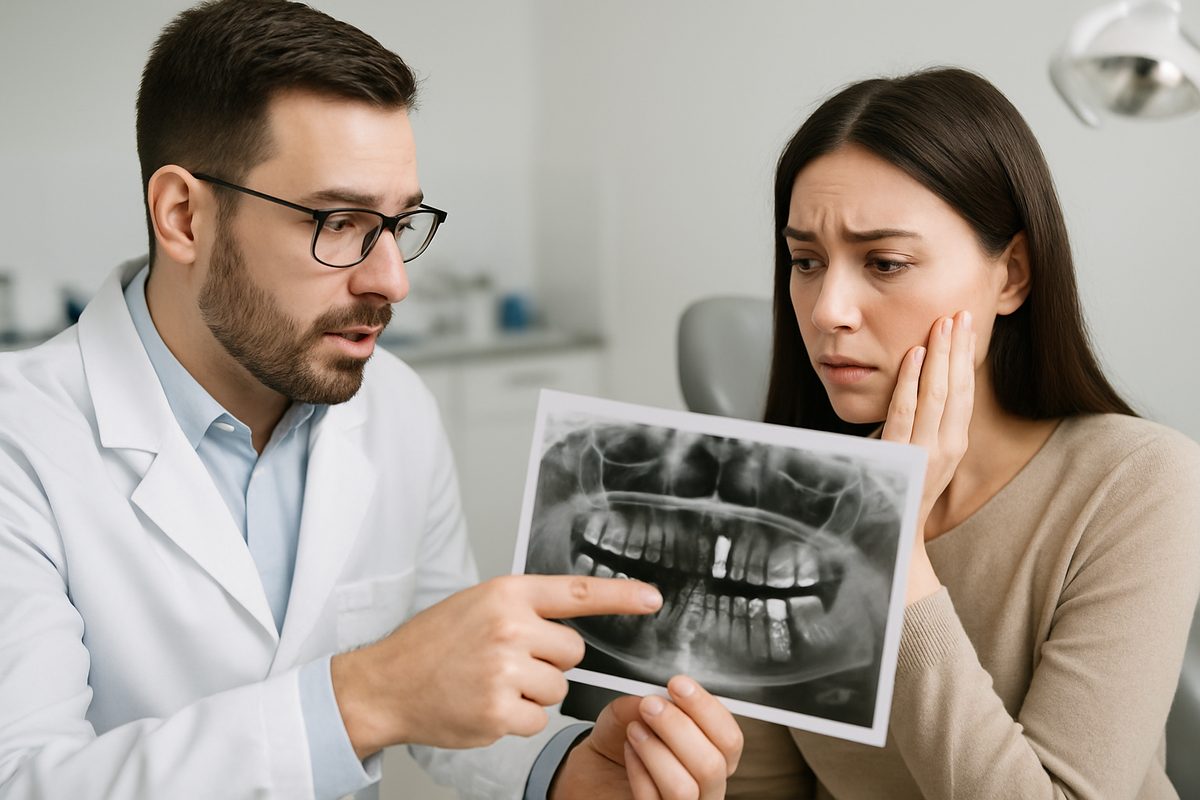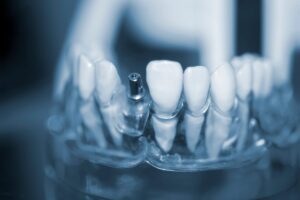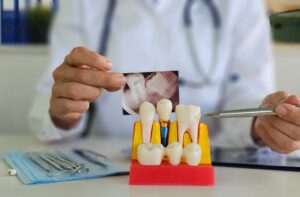Dental implant risks are possible complications patients should know before treatment. This post explains seven common dental implant risks, how they’re found and prevented, what normal recovery looks like, and when to get help. Read on to learn clear, practical facts about dental implant risks and how to lower them.
7 Most Common Dental Implant Risks
Infection at the implant site
Bacteria can enter the surgical site and cause infection. Watch for redness, increasing pain, swelling, warmth, or drainage. Early infections often respond to antibiotics and local cleaning; severe cases may need implant removal.
Failed osseointegration (implant doesn’t fuse)
Osseointegration is the bone’s fusion to the implant. Smoking, poor bone quality, uncontrolled diabetes, or infection can stop fusion. Failure shows as pain or a loose implant on X-ray. Treatment may include removing the implant, treating the area, and trying again later.
Nerve injury and altered sensation
Nerve trauma can cause numbness, tingling, or sharp pain, often in the lips, chin, or tongue. Some cases are temporary; others can be long-term. Early diagnosis helps—sometimes medications or surgical repair are needed.
Sinus complications for upper jaw implants
Upper jaw implants can perforate the sinus or create a communication with the nasal cavity. Symptoms include sinus pain, chronic congestion, or fluid from the nose. Solutions include sinus lift repair or repositioning the implant.
Peri-implantitis (gum disease around implants)
Peri-implantitis is inflammation and bone loss around an implant caused by plaque and poor oral hygiene. Look for bleeding gums, bad breath, or loosening. Early cleaning, antibiotics, and deeper measures can save the implant if caught early.
Bone loss and bone graft complications
Some patients need bone grafts before implants. Grafts can fail, take longer to heal, or hold less bone than expected. Insufficient bone raises the chance of implant failure and may require additional procedures.
Prosthetic or mechanical complications
Implant parts can fail—loose screws, fractured crowns, or wear from poor bite alignment. These usually need lab repair or replacement and regular maintenance to prevent repeat problems.
How These Dental Implant Risks Are Diagnosed And Prevented
A careful pre-op plan cuts risks. Providers review your health history, advise smoking cessation, control infections, and assess bone with Cone Beam 3D imaging. Surgical guides, Yomi robotic assistance, precise planning, and sterile technique lower complications. For patients seeking to understand dental implant risks in Idaho Falls, thorough diagnostics and follow-up care are key.
What Recovery Looks Like: Normal vs. Warning Signs
Normal recovery includes mild swelling, bruising, and soreness for a few days. Use ice, rest, and pain meds as directed. Warning signs: fever, spreading swelling, heavy bleeding, worsening pain, persistent numbness, or a loose implant. If you see those, contact your dentist.
When To Call Your Dentist Or Seek Emergency Care
Call right away for fever over 101°F, heavy bleeding that won’t stop, increasing swelling that affects breathing, sudden loss of sensation lasting more than a day, or a clearly loose implant. Take photos and note when symptoms began to help your team assess.
Why Choose an Experienced Implant Team
An experienced team reduces dental implant risks. At Bird Dental Studio, Dr. Jayson Bird and staff use Cone Beam 3D imaging, Yomi robotic guidance, and IV sedation options for comfort and precision. Their training and tech-focused planning aim to improve outcomes and lower complications.
Closing: Next Steps
If you’re worried about dental implant risks in Idaho Falls, schedule a consult to review your health, imaging, and options. Bird Dental Studio (3381 Merlin Dr, Idaho Falls, ID) can help build a personalized, safe plan—call (208) 886-1280 for new patients or (208) 529-0999 for current patients.






